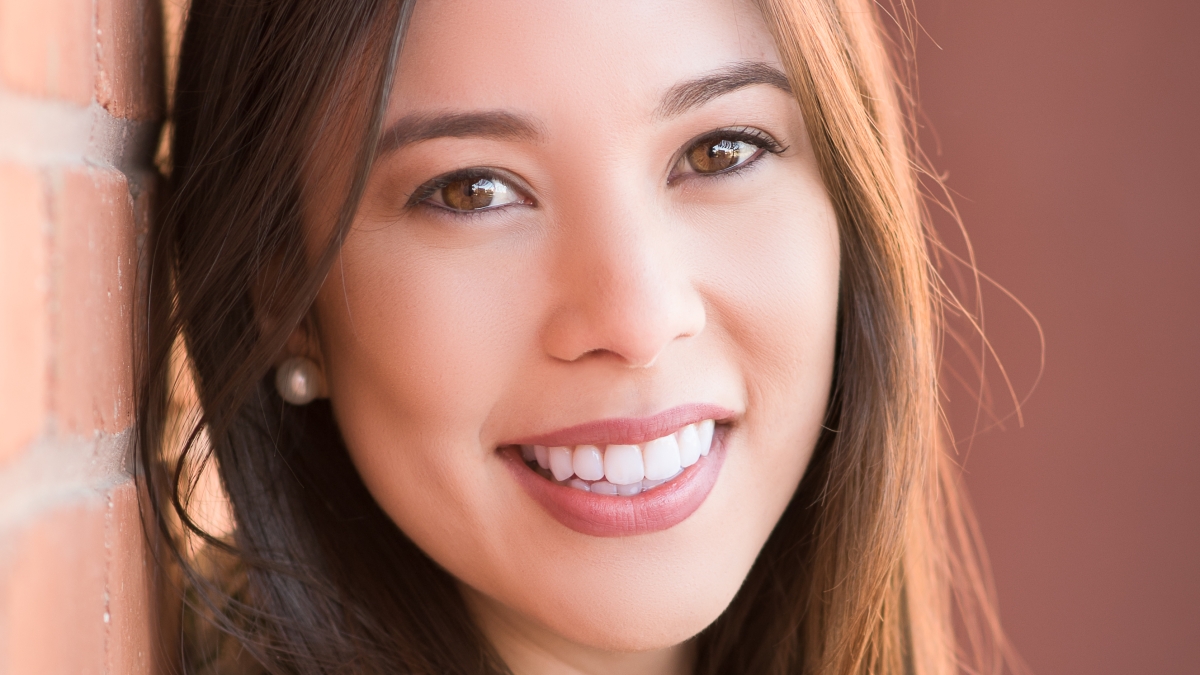Graduating student merges music, medicine to achieve dream goals

Nicole Blumenstein. Photo by: TAQ Photography
Editor’s note: This is part of a series of profiles for spring 2017 commencement. See more graduates here.
As a child, Nicole Blumenstein dreamed of being a scientist, maybe a doctor. She always assumed she would major in chemistry. But then she discovered the power of singing.
“I loved how molecules could fit together like puzzles and make up everything around us, but then I discovered in choir how powerful it is when people sing together,” she said. “This feeling consumed my thoughts in high school, and I joined every music ensemble I could to explore it further. I felt happiest when I was singing, and I felt compelled to learn more about music, which is why I decided to audition for college programs.”
Blumenstein landed a spot as a voice performance student in the ASU School of Music in the Herberger Institute for Design and the Arts. Now, she’s graduating from the School of Music as the Alumni Association’s 2017 Spring Outstanding Graduate for the Herberger Institute.
Blumenstein’s time at ASU and studying music led her back to medicine.
“It wasn’t until I got to ASU that I found out what music, and being a musician, is all about,” she said. “I felt drawn to choir because music has a way of breaking down barriers and connecting people no matter how different they are.”
Performing for and interacting with local seniors as part a student organization she started called “Jury’s Out: Music Students for the Community,” helped her see that the group was transporting ideas through time and making emotional connections with their audiences when they performed classical repertoire.
“These experiences made me realize that I love music because I am passionate about being part of a larger community, and this led to my decision to pursue a career as a physician so I can work as a community leader and maybe even find a place in the field of medicine for my skills as a musician,” she said.
While taking her music courses, Blumenstein also made sure to take the majority of classes she need to prepare for medical school and completed the MCATs. After graduation, she will be attending the University of Illinois College of Medicine to pursue her MD.
“Hopefully I will still find time for community performances.”
Blumenstein answered some questions about her experience at ASU.
Question: Why did you choose ASU?
Answer: I was unsure of my career path goals out of high school. I had two seemingly distinct passions: music and science. When I had a practice lesson with Carole FitzPatrick, who has now been my voice teacher for the past four years, I knew that I had found a music community where I could thrive. ASU also has enormous resources to support student research, so I didn’t need to give up my passion for science either, and I have been working in a neuroimaging laboratory for the past four years studying the neural correlates of music perception under Carianne Rogalsky. Now I understand how my passion for science and music fit together. Both are about collaboration and creativity, and I know that my experiences as a musician will help me when I’m interacting with patients and the community as a physician.
Q: What’s the best piece of advice you’d give to those still in school?
A: My advice is to pursue your passion, whatever it is, whole heartedly, while keeping an open mind to possibilities. I loved science and music, but I never thought I could do music research or use music as a community-building-tool, and this turned out to be the perfect field for me.
Q: What was your favorite spot on campus, whether for studying, meeting friends or just thinking about life?
A: I love taking a break to sit in the sun on Hayden lawn in the middle of the day. Everyone is bustling about, but I like to find a quiet moment among all the commotion before I join back in the throng.
Q: If someone gave you $40 million to solve one problem on our planet, what would you tackle?
A: I think that there are many pressing causes I would like to address such as access to clean water and healthy food. However, I’ve noticed throughout my career as a community musician that it is difficult to find support for community choirs and ensembles, and I think that these groups are the key to helping us get to know one another and become stronger as a whole. Therefore, I would set up community choirs, and I would also employ a team of researchers to study the community members so we can gather reliable data on how choir helps us in other areas of our life, whether it’s our physical or emotional well-being.
More Arts, humanities and education

‘It all started at ASU’: Football player, theater alum makes the big screen
For filmmaker Ben Fritz, everything is about connection, relationships and overcoming expectations. “It’s about seeing…

Lost languages mean lost cultures
By Alyssa Arns and Kristen LaRue-SandlerWhat if your language disappeared?Over the span of human existence, civilizations have…

ASU graduate education programs are again ranked among best
Arizona State University’s Mary Lou Fulton College for Teaching and Learning Innovation continues to be one of the best…

